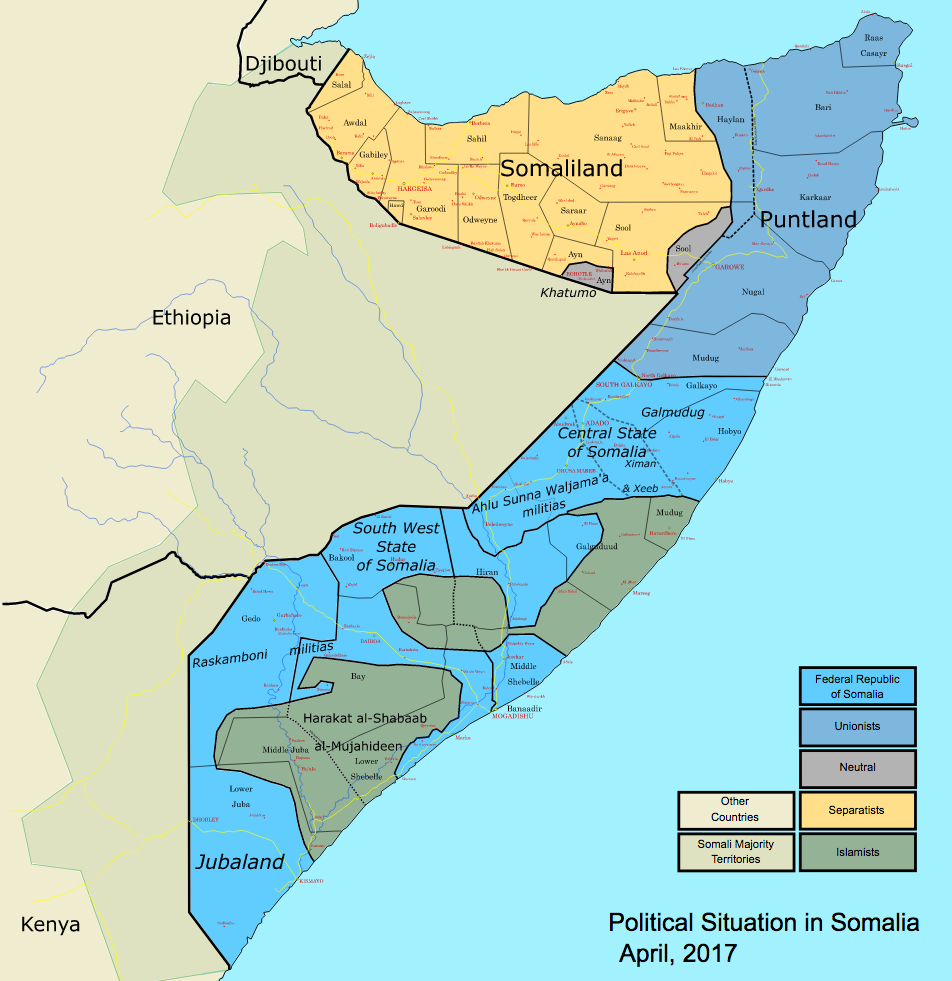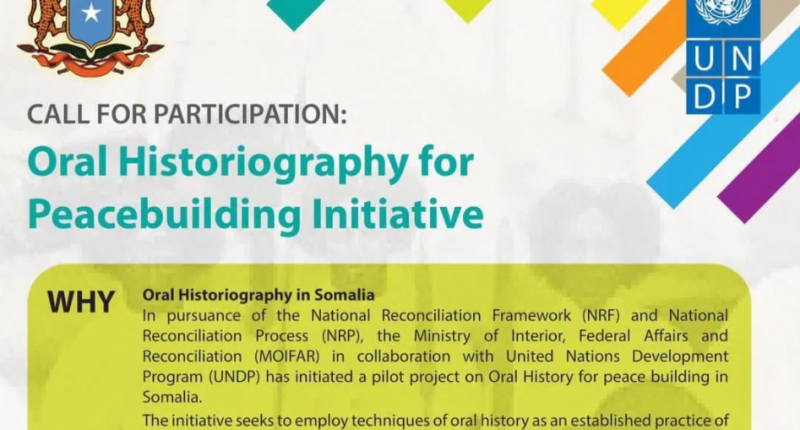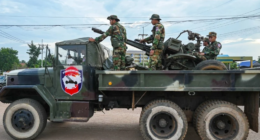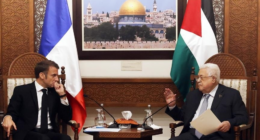By Liban Ahmad
The Somali Federal Ministry for Interior, Federal Affairs and Reconciliation in collaboration with the United Nations Development Programme has launched the Oral Historiography for Peacebuilding Initiative.
The initiative aims to foster reconciliation and strengthen peacebuilding in Somalia.
Participants’ ages will range between 18 years and 39 years.
They belong to two generations of Somalis who have not been directly involved in the Somali civil war. They will contribute oral histories as a part of a multimedia project. This is a remarkable aspect of the project given the fact that older generations (e.g. people who were twenty years old or above in 1991) have memories of the civil war and what it was like to live under a military dictatorship.
Three decades after the collapse of the central government in 1991, older generations remain divided over the causes and impact of the civil war.
The two generations on which the project will draw to collect oral accounts on the Somali conflict could revitalise Somali politics.

However, the project has a flaw.
“The relevance of oral history as a strategy for healing and peacebuilding becomes more pronounced in Somali for it being an oralist society and traditionally known as a nation of poets and bards” reads the paper introducing Oral Historiography for Peacebuilding.
Assuming that by oralist (related to oralism) the project sponsors mean oral, the description of Somalis as an oral society reduces their status to that of primary orality – people whose culture remains untouched by literacy – despite the introduction of written Somali forty eight years ago.
When Somalis’ oral traditions are referred to, the focus is on what Walter J. Ong describes in his book Orality and Literacy as “verbatim reproduction of oral materials”.
The collapse of the state in 1991, had impact on the use of written Somali for the print media, and as a medium of instruction, but the situation was reversed as early as 1999, when the World Wide Web afforded opportunities for the emergence of more than two thousand Somali language news websites.
The Internet facilitates the promotion of a culture of reading among Somalis.
“Our understanding of the differences between orality and literacy developed only in the electronic age, not earlier” writes Ong.

The phrase ‘oral culture’ often means different things to different people.
“Some Somali parents refuse to let their children be vaccinated. In an oral culture rumours proliferate, including the rather unhelpful ideas that vaccines are un-Islamic, or that they give you AIDS” writes Robert Guest in The Shackled Continent: Africa’s Past, Present and Future.
The oral historiography project has merits that could be complemented by a writing component. All political processes in Somalia deepen political inequality that many Somali social groups suffer under.
Young participants of the project will be to give insights into living in a country that gives some people more political and economic privileges while depriving politically marginalised Somalis of their rights in their own homeland.
The work can fill a gap that Somali think tanks and historians have not been able to fill: addressing the plight of the politically underprivileged Somalis.
The emphasis on orality and conflating it with oralism — defined by Collins Dictionary as “communication with people who are deaf via lipreading or speech rather than via manual signs” — shows that less effort has been put into formulating the project rationale.
Orality has become a type of stereotype that places Somalis among non-literate societies. It should never become a basis on which to launch an oral history project on Somalia’s recent turbulent past.
This article first appeared in the Puntland Post and is republished with permission









